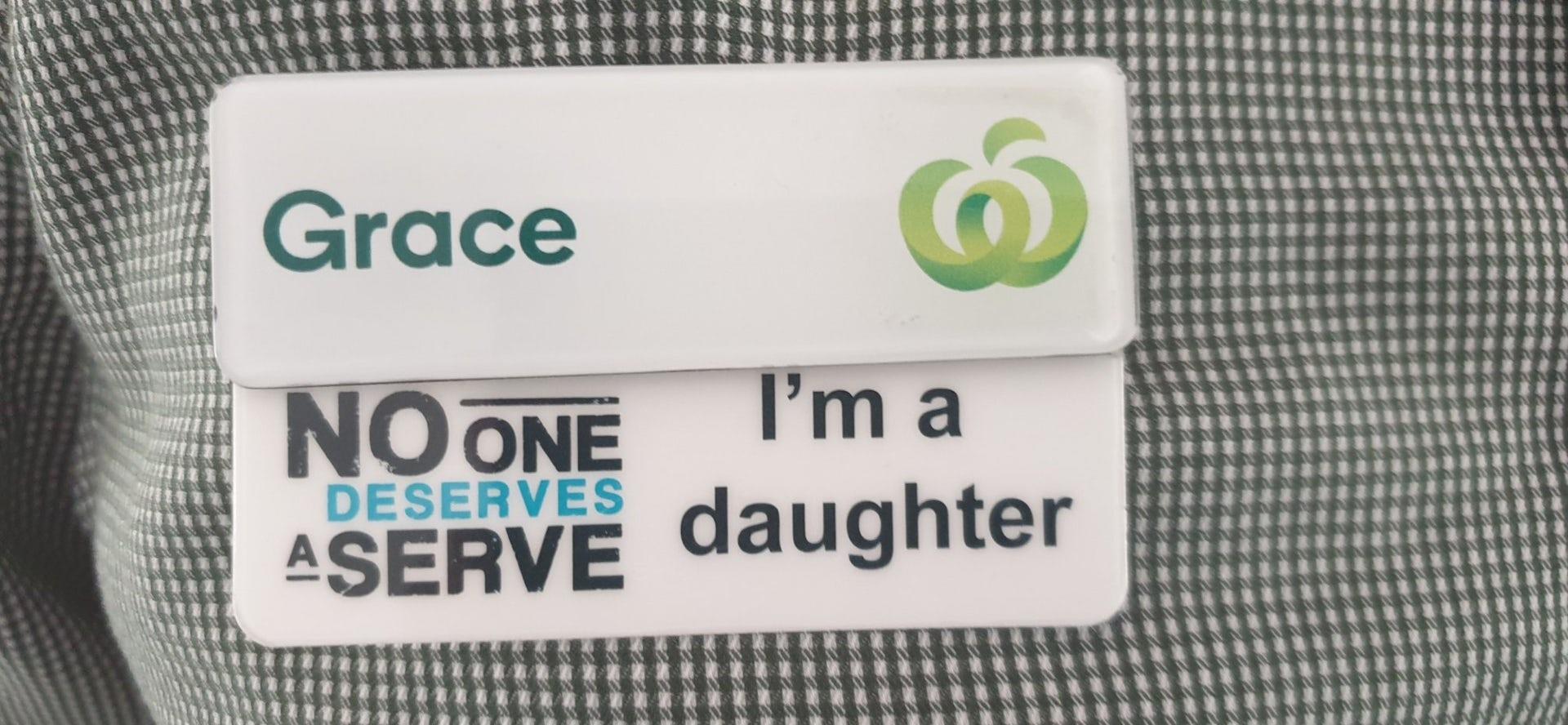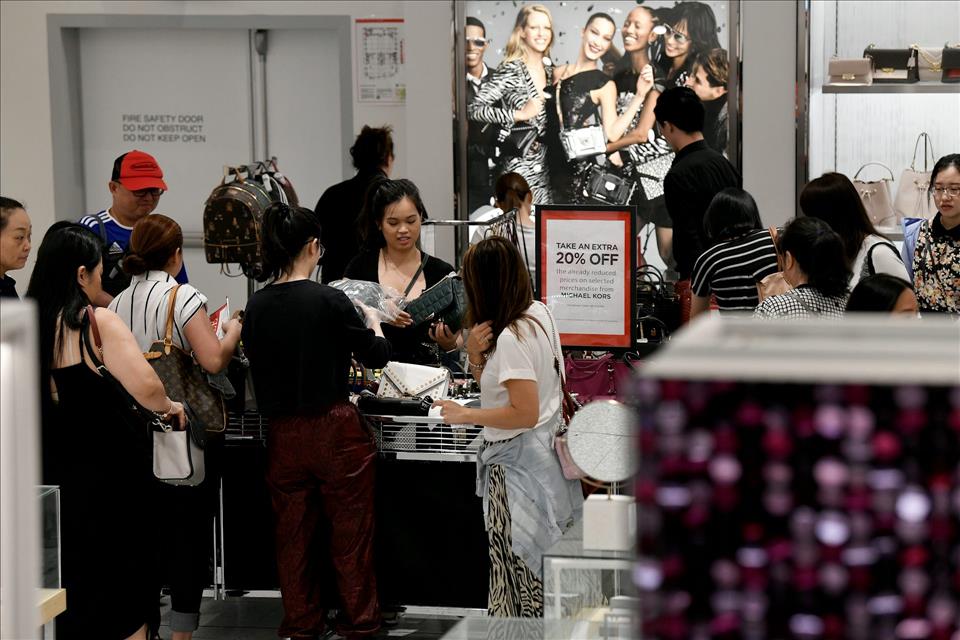
As Retail Workers Brace For The Silly Season, This 20C Solution Could Dial Down Customer Verbal Abuse
A union survey of more than 4,600 frontline workers found 87% had experienced customer verbal abuse in 2023 – consistent since 2016.
But incidents have become more frequent: in 2023, 76% of those who'd been abused experienced it daily, weekly or monthly, compared with 54% just two years earlier.
Retailers have spent millions on beefed up staff security measures, including body-worn cameras.
The lead up to Christmas is a notoriously bad time for customer violence and abuse against workers. On Thursday, a large collective of retail groups launched a national“Be Kind in Retail” campaign, urging shoppers to be compassionate and patient over Christmas.
But there is one ultra-cheap solution, trialled since 2020, which our three-part study has now confirmed seems to significantly reduce customers' intention to verbally abuse workers.
A name and a storyIn late 2017, the Shop, Distributive and Allied Employees' Association (SDA) union launched its“No One Deserves a Serve” campaign to reduce abuse of frontline staff.
Later, as part of this initiative, the union bought 500,000 adhesive plastic“under badges”, which were handed out for free from early 2020 to retail staff to stick to existing name badges.
An under badge is a small personal identifier attached below a name tag that can convey a short humanising message in a few words. Examples include“I'm a mother” or“I'm a son”.
The badges were trialled with retailers such as Woolworths, Target, Big W and KFC.
Around 2020, lead author Gary Mortimer's daughter came home from her job at a supermarket wearing one of these under badges.
Surprisingly however, there's been little research done into the evidence behind low-cost solutions to customer abuse, and whether such badges really could help curb customer abuse. So, we decided to investigate.
What our research foundIn our recently published study, we began by speaking with 17 supermarket workers in late 2024, who had participated in the“No One Deserves a Serve” campaign.

Under badge phrases included 'I'm a daughter'. Author provided (no reuse)
Some said they'd felt awkward about wearing phrases like“I'm a son”.
But overall, participants said under badges seemed to reduce verbal abuse, created opportunities to chat and increased customers' empathy.
A 39-year-old supermarket worker said:
Another 22-year-old worker said:
Interestingly, none of the workers interviewed were still wearing their under badge. It was not always unclear why; one participant told us it had fallen apart, while others may have been lost.
How did almost 1,000 customers respond?We also ran two experiments with a total of 940 customers.
First, we created a scenario where we described a poor service experience, which elicited anger.
We then presented artificial intelligence (AI) generated images of fictional retail workers. Some had just their name badge, while others disclosed personal information such as“I'm a daughter” on an under badge.
What 600 research participants were shown in a 2025 online survey, to gauge how much under badges saying things like 'I'm a mum' affected customers' likelihood of being verbally abusive. Reducing frontline employee directed verbal abuse: A multi-study approach, Author provided (no reuse)
We then asked 600 respondents how likely a“reasonable” customer would be to shout, complain aggressively, become verbally abusive, or argue with the worker.
While the under badge didn't completely deter verbal abuse, there was a statistically significant reduction in customers' intention to engage in verbal abuse when the additional badge saying“I'm a mum/dad/daughter/son” was also worn.
Finally, we replicated the experiment with 340 different customers. We changed the under badges to read,“I'm a local”.
The same procedures were used, and we again confirmed that any form of self-disclosure – that is, revealing something about our“personal story” – reduced customer abuse.
How humanisation can reduce customer abuseTwo theories can help explain why revealing something about ourselves fosters greater levels of respect and empathy in others.
The first, social penetration theory describes the way we move from shallow, to deeper relationships with others.
It suggests we assess the“rewards” and“costs” attained from interacting with other people. Social rewards may include being liked. Social costs emerge from feelings of vulnerability.
The second, social exchange theory, suggests when the social rewards are greater than the costs of the interaction, exchanges will continue.
However, for self disclosure to work, these theories suggest the information shared must be perceived as“more than what is expected”, possibly of a personal nature.
This“extra” personal disclosure tips the balance in favour of the customer, simply:“I've learned something about this worker, without having to divulge anything in return.”
Our research demonstrates when workers disclose personal information, a social exchange takes place. Customers see the worker as a human – not just an extension of the retail brand.
Retailers around Australia are gearing up for sales season over the Christmas period. Happy Kikky/Getty Trying to keep retail workers safer
Over the five years since the badges launched, we've observed far fewer worn in shops. However, the SDA told The Conversation it is still sharing them and they are still available.
But it's something businesses of all sizes could experiment with. Looking online to gauge current costs, we found it could cost as little as 17 cents per badge (plus GST) for a large business with 10,000-plus employees, to 43 cents for a smaller order of fewer than 1,000 badges.
It seems a small price to help remind customers that retail workers deserve to be treated as equals.

Legal Disclaimer:
MENAFN provides the
information “as is” without warranty of any kind. We do not accept
any responsibility or liability for the accuracy, content, images,
videos, licenses, completeness, legality, or reliability of the information
contained in this article. If you have any complaints or copyright
issues related to this article, kindly contact the provider above.


















Comments
No comment